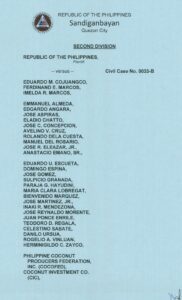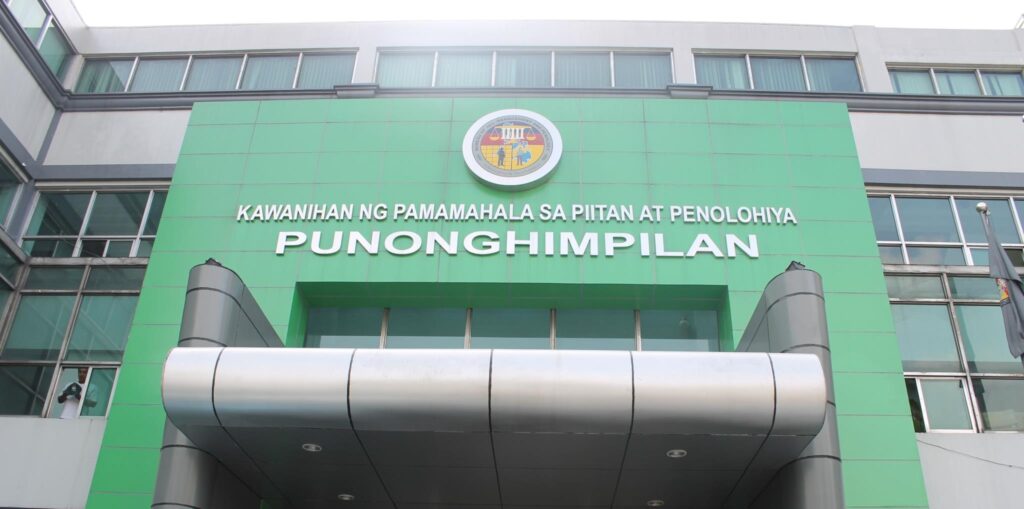The Sandiganbayan has dismissed the final six ill-gotten wealth cases related to the coco levy fund involving the late former President Ferdinand Marcos Sr., former First Lady Imelda Marcos, Chief Presidential Legal Counsel Juan Ponce Enrile, and their associates, citing excessive delays.
In a 42-page resolution issued on December 12, 2024, the court’s Second Division ruled to junk the cases due to “inordinate delay in the proceedings.”
The resolution pertains to subdivided Civil Cases No. 0033-B, 0033-C, 0033-D, 0033-E, 0033-G, and 0033-H, which originated from the main case filed by the Presidential Commission on Good Governance (PCGG) on July 31, 1987.
The original civil case aimed to recover ill-gotten wealth allegedly amassed by the defendants through the misuse and misappropriation of the coco levy funds.
“As of the release of this resolution, this delay has been extended to thirty-six (36) years from the time of filing of the original complaint, and twenty-eight (28) years from the subdivision thereof. Therefore, it is the plaintiff Republic that bears the burden of proving that the delay of almost three decades in proceeding to trial in each of these subdivided cases,” the ruling read.
“Plaintiff Republic has not presented any compelling argument for this Court to re-litigate and reopen these matters, much less a reason to diverge from the conclusions of the highest court of the land,” the ruling added.
The Sandiganbayan noted that the defendants endured years of uncertainty, suspicion, and financial burden due to the prolonged legal proceedings.
The court concluded that the PCGG and the Office of the Solicitor General’s inaction caused “vexatious, capricious, and oppressive delays,” thereby violating the defendants’ right to a prompt resolution of their cases.
“It is patently absurd to claim that the current amount of delay is necessary or beneficial to the resolution of the cases herein. Mere invocation of the gravity and notoriety of the overarching illegal scheme or activity upon which a specific case relates will not suffice as justification for the delay in its resolution,” the ruling read. (TCSP)




